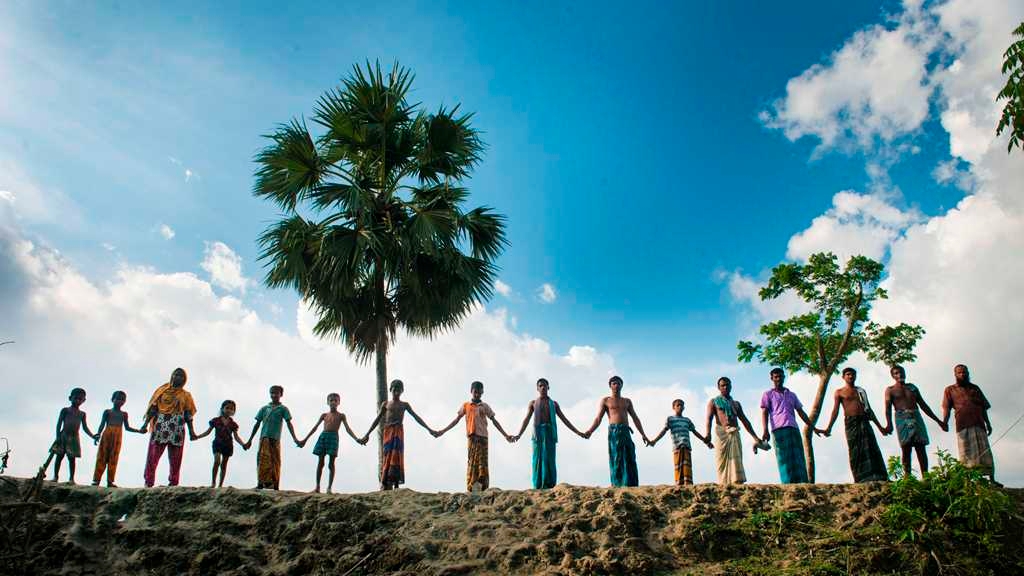Recent studies suggest that the coastal population in Bangladesh will become more vulnerable to salinity intrusion in a changing climate. The coastal community in southern Bangladesh will be on the “front line” of climate change because of continued sea-level rise (SLR) beyond 2100, even if greenhouse gas emissions are stabilized today. Therefore, it is imperative for Bangladesh to understand the potential impacts and begin planning to cope with them.
To date, most research on Bangladesh has focused on the long-run effects of inundation from SLR and associated losses from heightened cyclone-induced surges. Increased salinity from saltwater intrusion and its impact on livelihoods and adaptation alternatives need to be investigated in great detail.
To look more closely at the impacts of climate change on salt water intrusion, the World Bank recently conducted the following research studies in the coastal region of Bangladesh. The region is already facing problems from salinization. The situation will worsen as climate change continues.
River Salinity in Coastal Bangladesh in a Changing Climate
This study indicates that climate change will cause significant changes in river salinity in the southwest coastal region during the dry season (October to May) by 2050. This will likely lead to shortages of drinking and irrigation water and cause changes in aquatic ecosystems. Changes in river salinity and the availability of freshwater will affect the productivity of many capture fisheries. It will adversely affect the wild habitats of fresh water fish and giant prawn. In addition, salinity increase may induce a shift in the Sunderbans mangrove forest from Sundari (the single most dominant and important species, with the highest market value) to Gewa and Guran. Estimates from the research indicate that Bagerhat, Barguna, Barisal, Bhola, Khulna, Jhalokati, Pirojpur, and Satkhira districts will be most adversely affected. The study uses hydrological models, and geographic overlays to assess location-specific river salinity in coastal Bangladesh for alternative climate change scenarios and projections of subsidence of the Ganges delta by 2050.
Soil Salinity in Coastal Bangladesh in a Changing Climate
This study identifies soil salinization in coastal Bangladesh as a major risk from climate change. In the coming decades, soil salinity will significantly increase in many areas of Barisal, Chittagong and Khulna districts. The study assesses changes in soil salinity in coastal Bangladesh from 2001-2009, using salinity information recorded at 41 soil monitoring stations by the Soil Research Development Institute. It projects a median increase of 26% in salinity by 2050, with increases over 55% in the most affected areas.
The Economics of High-Yield Rice Production in a Changing Climate
This study predicts the impact of climate-induced increases in soil salinity on the output of high-yielding-variety (HYV) rice. The findings indicate that rice yield will decline by 15.6 percent in nine coastal upazilas where measured soil salinity will exceed 4 decisiemens per meter by 2050. Without new coping strategies farmers will earn less from HYV rice production in many areas, including losses of 10.5 percent Barisal and 7.5 in Chittagong. Many upazilas have already suffered large yield losses and substantial price reductions from rising salinity, and this will continue as long as the sea-levels rise and salinity increases.
Groundwater Salinization and Road Maintenance Costs in a Changing Climate
This study finds that maintenance expenditure for municipal paved roads in coastal Bangladesh will increase 252 percent because of increased ground water salinity. The increased damage is caused by the penetration of saline water, which causes blistering and cracking of road surfaces. The poor will suffer most from this climate change impact if the increase in road maintenance expenditures reduces support for community sanitation, health, and other infrastructure-related programs..
Livelihood Threats, Family Structure and Economic Welfare in a Changing Climate
This study finds that households in areas with high inundation and salinization threats have significantly higher out-migration rates for working-age male adults, dependency ratios and poverty incidence than households in non-threatened areas. The study looks at the impacts of inundation risk, salinization and market access on household composition, economic welfare, and poverty in coastal Bangladesh. When salinity, inundation risk and market access are switched from their least harmful to most harmful levels, the poverty impact is striking: the probability that the economic status of a coastal household is in the bottom 20 percent rises six-fold, from 8% to 56%.
The study recommends investment in infrastructure, especially roads, as improved access may significantly improve the economic welfare of isolated coastal region settlements. The benefits of providing better market access are significant even without climate change, making such investments an attractive no-regret option.
The analytical frameworks and estimates in these studies should help policy makers and researchers prepare for dealing with the adverse effects of a changing climate. The studies will be particularly helpful to the Bangladesh government as it prepares location-specific coastal adaptation plans.
BNPP funded the research on river salinity. All the other 4 papers were funded by the Knowledge for Change Trust Fund administered by the World Bank.

